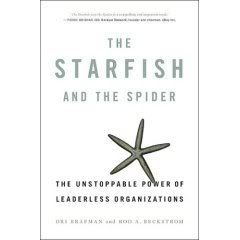skip to main |
skip to sidebar
Give me Real, Don't Give Me Fake (updated)

Look at earth from outer space
Everyone must find a place
Give me time and give me space
Give me real, don't give me fake
Give me strength, reserve control
Give me heart and give me soul
Give me time, give us a kiss
Tell me your own politik
~Coldplay, Politik
(just as an aside, I laughed and mused about the future of the PCA as one of the committee reports was being given by a Teaching Elder in a Coldplay t-shirt in front of the 2006 General Assembly. "Fathers and brothers, let us pray . . ." This year's GA had live chat to go with the live AV feed. In the chat room some people were gasping, others were high fiving. Alas, a parable for our times.)
This has been a wonderful year for our family and ministry. When people ask how church is going, I keep saying "Fun". Our family is best described by "crazy as usual, but all good."
Things have developed in our church in ways I could have only dreamed. How we got there was a mix of simple use of the means of grace, some humbling through strains and stress, and most suprising of all, some helpful "processing" insights from a quarter I would never have expected: leadership books.
Since "leadership" was the mantra at my seminary (which I won't mention so as to protect my blogger "street cred") , I fled the other way by going to the past (Owen, Edwards, Calvin, Augustine, Irenaus). I looked sideways and down at guys that were talking about "finding their niche" , "empowering the laity", discover your uniqueness, ad nauseum. In what we Calvinistas term "common grace" is a huge body of work and thinking that describes how people and organizations work because they are made in the image of God. By design, people and groups of people work (albeit in a fallen way) "predictably" and by working consistently with the way God has designed us, we start to both understand and utilize what good things God has worked into creation. Christian Schwartz of Natural Church Development has called us to understand and utilize biological models of growth rather than manipulative models of psycho cults and hipster gurus.
I have found further corroboration of this in the following books:





A few months ago I wouldn't have picked up such books much less lauded them. Why do so now? What these books describe and offer is the answer to the cry: "Give me real don't give me fake." The world wants something that works. We say Christianity is true, but don't show how Christianity works.
One biblical example: "And he gave pastors and teachers to equip God's people for the work of ministry." Eph. 4.11. What this verse describes and teaches is that elders are given to be catalysts for the growth and involvement of God's gifted people. When leaders desire to be in control rather than serve and thereby encourage and influence, God's people are pushed or stopped, rather than unleashed to serve in their unique ways. Leadership becomes a bottleneck to go through, butt heads with, or vote out. This is hardly what Jesus intended. When we see our role as equippers rather than managers, and see organic growth versus top down mandate as the goal, we will see the kind of collaborative growth seen in internet phenomena ("viral marketing") like YouTube and Wikipedia, and open source exploration like Ontario's Goldcorp. (One of the most fascinating tales in Starfish.)
One of our greatest areas of growth this year is in the desire and thought put into outreach. This is where Church Marketing 101 was useful. Our congregation meets in rented facilities with no permanent signage and at the moment no temporary signage, beyond our website. No one knows we exist. This means we must make ourselves known. People who cringe at the word "church marketing" think of it as "tickling ears" and "giving people what they want vs. what God wants." As the author of this book points out, marketing in its truest sense is telling people who you are so that they can't mistake what you're about and what you are offering. The way we love people is by being clear on Jesus and the Gospel and clear on who we are. The sheer exercise of explaining who we are helps us refine who we are and stay on target with our Christ centred and Gospel fueled mission. We are not doing theology via focus group but opening a conversation with Christ at the centre and confusing messages in the dustbin.
In these ways we can have real ministry, communicate who we really are, and in the process communicate that Jesus is ruling all things, especially his church, with truth and grace.









No comments:
Post a Comment